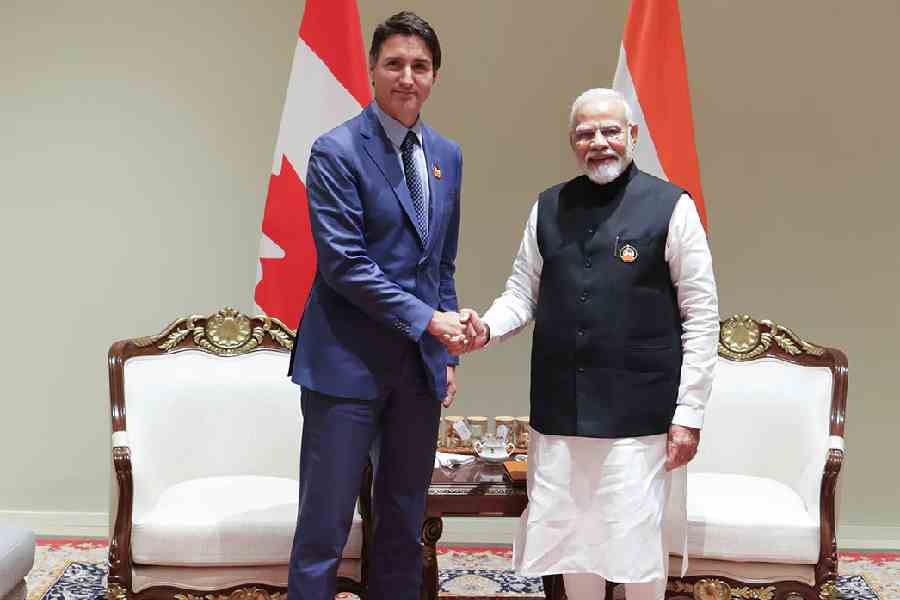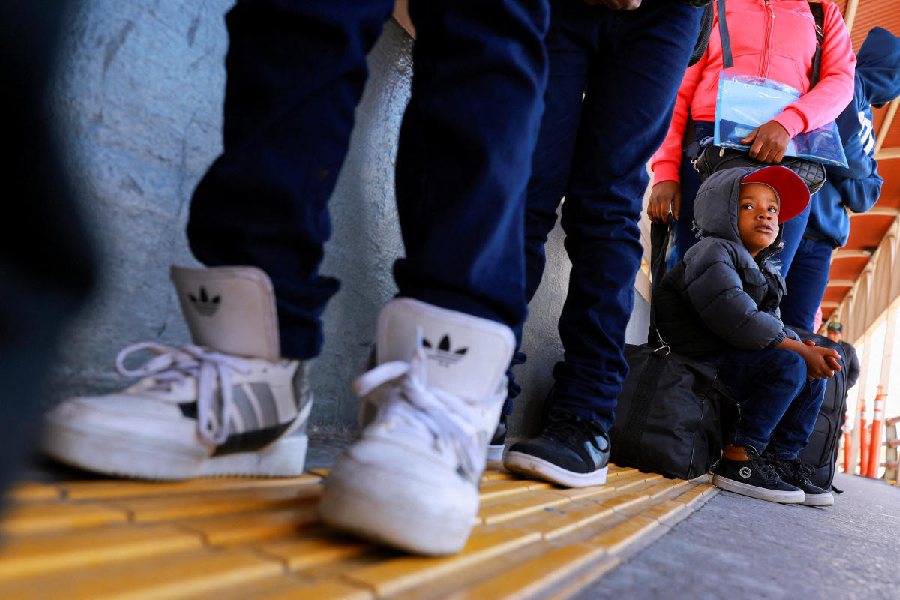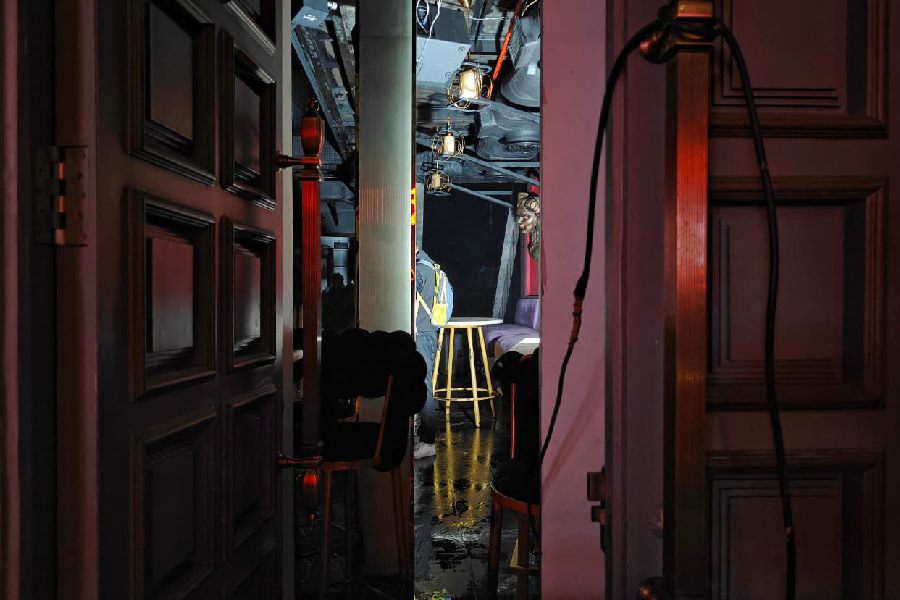Canada has turned up the heat to full blast in the battle with India about the murder of Sikh separatist Hardip Singh Nijjar. It expelled an Indian intelligence officer from Ottawa – prompting India’s tit-for-tat expulsion Tuesday of a Canadian diplomat – and Canada’s Foreign Minister Melanie Joly told a press conference she will put India in the dock when she meets allies at the UN General Assembly this week.
Now, the big question is how much hard intelligence does Canada believe it has that India was behind the June shooting death in Surrey, British Columbia, of Nijjar. Canadian police say 45-year-old Nijjar was ambushed in his truck by two masked men in the parking lot of a gurdwara of which he was president.
Canada has shared evidence with the Five Eyes, the informal intelligence-sharing system between the US, UK, Australia, New Zealand and Canada. It even wanted these countries to issue a joint statement on the killing. The Washington Post says the Canadians shared their evidence several weeks ago but their allies like the US and UK were reluctant to make any moves, particularly as they didn’t want to impact the G20 meet in Delhi.
Deeply concerned: US, Australia
While that hasn’t happened, the US has said it’s “deeply concerned about the allegations” and that it’s “critical that Canada’s investigation proceed and the perpetrators be brought to justice.” It has urged India “to cooperate” with an investigation. Australia, too, has said it’s “deeply concerned by these allegations” and added that "We have conveyed our concerns at senior levels to India.” UK foreign minister James Cleverly, meanwhile, said that, “Obviously, with something as sensitive as this, we want to make sure that Canada is able to conduct a full and transparent investigation.”
Before making his bombshell announcement at an emergency session of Canada’s House of Commons, Prime Minister Justin Trudeau briefed both U.S. President Joe Biden and British Prime Minister Rishi Sunak about what he called the “credible allegations of a potential link between agents of the government of India and the killing of a Canadian citizen Hardeep Singh Nijjar”.
What droveTrudeau to make his dramatic statement this week to parliament after his testy encounter with Prime Minister Narendra Modi at the Delhi G20 summit in which he said he raised India’s alleged involvement in Nijjar’s death “personally and directly" and “in no uncertain terms”? One Canadian newspaper says Trudeau went public with his allegations because Canada’s top newspaper, The Globe and Mail, was about to go ahead with an exclusive story.
Intelligence solid: Ottawa
Trudeau insisted to reporters that Ottawa’s intelligence was solid. “Over the course of the summer, we have been working with our intelligence agencies. We wanted to make sure we had solid grounding in understanding what was going on. We wanted to share with our allies what we knew. The government of India needs to take this with the utmost seriousness.”
If the allegations are “proven true, this would be a grave violation of our sovereignty,” said Joly, at a press conference.
India hit back equally strongly, expelling the top Canadian intelligence officer in Delhi and repeating accusations that Canada, which is home to 770,000 Sikhs, the largest Sikh population outside of Punjab, is soft on the Khalistan issue and provided shelter to Khalistani terrorists and extremists” who threaten India’s security.
“Allegations of Government of India's involvement in any act of violence in Canada are absurd and motivated...We are a democratic polity with a strong commitment to rule of law," the foreign ministry said in a statement.One Canadian journalist commented that the row between the two countries had turned into “a bare-knuckle brawl”.
Electronic evidence
Does Canada have unquestionable proof that Indian intelligence agencies were involved in Nijjar’s murder? If it does, it would be extremely grim for India putting in the company of countries like Saudi Arabia and Russia. One point is that if Canada has presented evidence to the Five Eyes, it must have electronic evidence to prove its case.
On the other hand, if Canada doesn’t have cast-iron proof to back their allegations that will leave them with more than egg on their face. Trudeau has not divulged anything about the “credible evidence” he says Ottawa holds despite calls by the main opposition Conservative party to “come clean with all the facts”.
Nijjar, who ran a plumbing business, headed an organisation called the Khalistan Tiger Force which the Indian government designates as a terrorist group. India had demanded his extradition on several charges related to terrorism and put a bounty on his head.
Nijjar was warned
Nijjar had been warned by “gang members” and the Canadian Security Intelligence Service that he was being targeted by “professional assassins”, Canadian media reported. Canadian investigators said last month that they’d identified three suspects in Nijjar’s murder – the two shooters and one getaway car driver – but they have made no arrests.
Nijjar’s lawyer Gurpatwant Singh Pannun said he believed his client was targeted for organising a planned non-binding referendum in Canada on carving out an independent Sikh homeland. The unofficial vote was held last week and organisers claimed more than 100,000 people participated in the vote - though this figure should probably be taken with a few pinches of salt.
One question analysts are raising is why did Trudeau go for the nuclear option by making a statement in the Canadian parliament? There’s the possibility that he presented evidence to Modi and was startled when the only response from the Indian side was to give him the cold-shoulder. After the two leaders’ G20 encounter, the foreign ministry said Modi had voiced his concern about anti-India protests in Canada. “They are promoting secessionism and inciting violence against Indian diplomats, damaging diplomatic premises," a statement said.
Electoral compulsions
The second possibility is an electoral calculation. The popularity of Trudeau and his Liberal party has been sinking in opinion polls. A general election isn’t due until 2025 but it’s already clear that every vote will count. Trudeau’s Liberal Party has 160 seats in the Canadian parliament and that’s 10 short of the 170 needed for a simple majority. Out of these 20 seats are held by Asians and 19 of them are Punjabis. Also he gets his parliamentary majority because he is backed by the National Democratic Party (NDP) led by Sikh-Canadian Jagmeet Singh. Singh has, on several occasions, issued anti-Indian and pro-Khalistan statements.
There’s also the fact that his government has been accused of laxity in reacting to allegations of interference in Canadian politics by China and Russia. A Quebec judge began this week an independent public inquiry into the allegations and the government has said that the inquiry could now also review India’s alleged behavior.
Relations between Ottawa and Delhi have been frosty for decades due to friction over Canadian Sikh separatist activities. There’s been long-simmering anger and bafflement in India over the botched Canadian investigation into the downing of an Air India plane by Sikh separatists that killed 329 people. Two Sikh separatists were acquitted at a 2005 trial, one of whom was shot to death last year. Also, India has been irritated over the last two years by numerous protests and events staged in Canada demanding the establishment of “Khalistan.”
Ties at a lowest level
Nijjar, who left behind a wife and two adult sons, came to Canada in 1997 and claimed refugee status, saying he had been tortured by Indian police, after entering the country on a false passport. That claim was rejected and just 11 days later he married a woman who sponsored him for immigration. That too was turned down as a marriage of convenience. He eventually became a citizen in 2015, the government said.
But Canadian ties with India, which Ottawa perceived as being a potentially key strategic partner, have now fallen to their lowest level yet. Canada shut down trade talks with India before the G20 meeting for undisclosed reasons.











